Interview Like A Pro – Part 2

In the previous post we discussed the motivation and the background preparations for interviewing customers.
In this post we’ll discuss a key preparation stage which deserves a post of its own – the customer questionnaire!
So – what should we have accomplished by this time?
- We know why we are setting these interviews (roadmap checkup, new product, customer complaint, etc..)
- We know what data we’d like to gather during such an interview
- We have scheduled the interview/s and made sure the right person from the customer’s organization will be in the room
- We made sure we’ll have no interferences during the interview
As noted above – one thing that I didn’t discuss in the last post (because it became too long already…) is the customer questionnaire that you will need to work on prior to the interview. Let’s discuss it for a second because it’s very important.
The Customer Questionnaire
The questionnaire is a document that contains a brief overview of the customer and what you’d like to ask them. It’s crucial to prepare in advance if you want the interview to be a success.
Why do I need this?
Without it there is a very big chance one or both of the following would be the outcome of your interview:
- The customer will feel you are wasting their time because either you clearly don’t know who they are and what they do, or there are a lot of awkward moments of silence where you’re trying to think on what to ask next.
- You may end the meeting without having the feedback you so dearly needed because you forgot to ask something important.
Should it be a general document or should I produce an instance for each customer?
Definitely the latest. You should have a general template and make a copy for each customer. Why? Few reasons:
- The ‘customer profile’ section (see below) will be different for each.
- Some of the questions will be irrelevant for some customers. For other customers you will need to add dedicated questions just for them.
- You may have in your possession some specific features requests that were raised by this customer that you’d like to discuss.
In general I’d recommend creating a directory for each customer and for each interview. You can later also put the interview summary there.
What should it contain?
The questionnaire contains all the ‘must have’ questions and the ‘bonus’ questions as well (the questions you will be able to ask only if time allows). It’s very useful to group together related questions under the same section. I will provide here a couple of examples for such sections based on the original motivation for the interview:
If I’m interviewing the customer because I’m testing the water about a new product I’ve been working on – then this is how I’d structure it:
- Customer profile
- Current solution and its pains
- Competitive products tested
- The ideal solution – customer’s version
- The proposed solution – discussion and feedback
If I’m here to gather general feedback about the current product and planned features then I’d structure it this way:
- Customer profile
- Impressions and feedback of the current offering
- Digging into main pain points
- Planned features – discussion and feedback
Customer profile
The customer profile section is a unique section in the sense that some of the information there is not questions, but rather some data points you gathered about the customer from their site and the data you have about their usage patterns from your internal databases. For example – the industry they are in, their main product and some usage stats of how they use your product. It reflects what you know so far about this customer prior to the interview.
It’d be very useful to have it in front of you while interviewing and it will also help you to fine tune your questions for this customer.
In addition to this background information, you will need to add some general questions in the spirit of:
- What is your official role? (if it’s the first time you are meeting this person)
- How do they position themselves in the industry? (you may know this already, but you want to hear the pitch from them)
- How do they measure success and what are their main KPIs?
- How they benchmark themselves against their competition
- Performance metrics they are willing to share?
- Their main challenges for the coming 12 months?
Key questions
It will take a huge amount of time and will make it a very long post to address all scenarios and all the related questions given a scenario. Therefore, I will only list below some non-trivial questions that I’ve found to be very useful when conducting an interview:
Questions about the current solution and main pain points
- What are the main advantages you see to using our product compared to the competition?
- If you could add only one feature to the product – what would it be?
- If you could change the behavior of one feature only – which feature would you change and how?
- What complementary services to our product are you using to do your job?
Questions about proposed new product
- From 1-10 how excited are you about the product I just described? Why?
- Are you aware of similar solutions that currently exist in the market?
- What are your main concerns from this product, now that you heard about it?
- Is there anyone else in your company who you believe could benefit from such a product?
- Ignore all boundaries for the context of this question and try to describe how the ideal and most amazing product that solves this problem would look like?
- What would be the minimal acceptance bar for a product aiming to solve this problem? What would you never tolerate?
Questions about the competition
- Have you conducted some sort of a market research before choosing our product? If so – why did you choose us?
- What are the features you’ve seen in competitive products that you wish were included in our products?
- What are your main decision points when considering such products?
- [If they worked with a competitive product before and switched to you] Why have you decided to switch to us? What was the main criteria for leaving the competition?
Of course there are other zillion questions you can ask, and there are the trivial ones that I didn’t bother mentioning. I’m counting on your common sense here to fill the gaps.
What to avoid
You only have 45 minutes to 1 hour. Be mindful of the time when planning the questionnaire. Specifically:
- Don’t write down too many questions.
- Avoid high-level open questions/requests. For example – avoid requests of this kind – ‘can you show me how you use the system?’
This is too high level and general. If the customer is willing to do so – it will take a lot of time and will take over your meeting. If you insist on seeing how they interact with your product – be specific and focus on the flows that matters to you. For example:
‘Can you show me what you do when you want to generate a monthly report?’
- Don’t ask questions about information you could easily dig from the web or your internal sources. It will both waste precious time and cause the interviewer to think less of you (or even get annoyed). I personally witnessed other product people interviewing when they didn’t do their homework properly and the interviewer confronted them about it directly during the interview. It was very embarrassing. Avoid that.
That’s it for today. I hope that in the next post we can finalize this series (honestly, I will only know when I start to write it… I’m consumed by moments of ‘crap, I almost forgot, I must cover this as well’).
If you found it useful – feel free to ‘like’ it. If you think others can benefit from it – feel free to share it with them.
Thank you, and until next time 🙂
